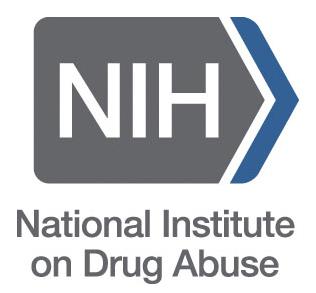$2.8 million grant for full scale clinical trial of Mindfulness-Oriented Recovery Enhancement
 CSW Associate Dean for Research Eric Garland was awarded a five-year, $2.8 million R01 grant from the NIH National Institute on Drug Abuse to conduct a full-scale clinical trial of Mindfulness-Oriented Recovery Enhancement (MORE) as an intervention to reduce chronic pain and prescription opioid misuse in primary
care. This five-year study, entitled Targeting Hedonic Dysregulation to Address Chronic Pain and Opioid Misuse in Primary
Care (R01DA042033), will compare the efficacy of MORE to supportive therapy for 260 chronic
pain patients receiving long-term opioid therapy who are at risk for opioid misuse.
CSW Associate Dean for Research Eric Garland was awarded a five-year, $2.8 million R01 grant from the NIH National Institute on Drug Abuse to conduct a full-scale clinical trial of Mindfulness-Oriented Recovery Enhancement (MORE) as an intervention to reduce chronic pain and prescription opioid misuse in primary
care. This five-year study, entitled Targeting Hedonic Dysregulation to Address Chronic Pain and Opioid Misuse in Primary
Care (R01DA042033), will compare the efficacy of MORE to supportive therapy for 260 chronic
pain patients receiving long-term opioid therapy who are at risk for opioid misuse.
Opioids may be medically necessary for some individuals experiencing prolonged and intractable pain, and most patients take medicine as prescribed. Unfortunately, opioids rarely completely alleviate chronic pain, and when taken in high doses or for long periods of time, they can lead to serious side effects, including death by overdose, as well as risk for opioid misuse, which affects about 1 in 4 opioid-treated patients. Misusing opioids by taking higher doses than prescribed or by taking opioids to self-medicate negative emotions can alter the brain’s capacity for hedonic regulation, making it difficult to cope with pain (e.g., causing hyperalgesia – an increased sensitivity of the nervous system to pain) and experience pleasure in life (e.g., reducing sensitivity of the brain to natural rewards). As such, non-opioid pain treatments that target hedonic dysregulation may be especially helpful for reducing chronic pain and prevent opioid misuse.
Multiple studies suggest that MORE improves hedonic regulation in the brain, resulting in decreased pain and an increased ability to savor natural, healthy pleasure. People who participate in MORE show heightened brain and body responses to healthy pleasures, and report feeling more positive emotions by using of mindfulness as a tool to enhance savoring. These therapeutic effects of MORE on savoring may be critically important, because findings from several studies show that increasing sensitivity to natural reward through savoring may lead to decreased craving for drugs – a completely novel finding for the field of addiction science (Garland, 2016). This NIDA-funded R01 will provide a rigorous test of whether MORE improves chronic pain and opioid misuse by targeting hedonic dysregulation.
In Dr. Garland’s NIDA-funded R01, patients are receiving MORE at community medical clinics throughout Salt Lake City. Providing MORE in the naturalistic setting where most chronic pain patients seek medical care will make the therapy accessible to the people who need it the most. Ultimately, Dr. Garland hopes this project will advance a new form of integrative healthcare, in which doctors and nurses work alongside social workers and other behavioral health professionals to help patients reclaim a meaningful life from pain.
CSW Research News
Categories
Tag Cloud
- criminal justice (1)
- homeless (1)
- Pay for Success (1)
- Salt Lake County (1)
- recidivism (1)
- housing (1)
- Anderson (1)
- Foster (1)
- Alzheimer's care (1)
- National Institute on Aging (1)
- NIH (2)
- dementia care (1)
- mobile technology (1)
- ViSUS (1)
- Garland (1)
- NIDA (1)
- MORE (1)
- opioids (1)
- addiction (1)
- hedonic regulation (1)
- neuroscience (1)
- integrative health (1)
